
Fernando Luján was a Mexican actor. He was a star of the silver screen in classic mexican films during the Golden Age of Mexican cinema.

Andrés Wood Montt is a Chilean film director, producer and writer. Some of his most popular films include Machuca, Violeta se fue a los cielos, and Historias de Futbol. He created his own production company known as Wood Producciones in 1993.

María del Rosario López Piñuelas better known as Charo López, is a Spanish actress.
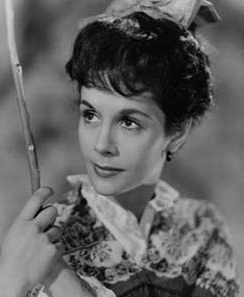
Delia Amadora García Gerboles better known as Delia Garcés was an Argentine film actress of the Golden Age of Argentine Cinema (1940–1960). She made almost 30 appearances in film between 1937 and 1959 and acted on stage from 1936 to 1966. She won the Premios Sur Best Actress award three times from the Argentine Academy of Cinematography Arts and Sciences, as well as the Argentine Film Critics Association's Silver Condor Award for Best Actress, the Premios Leopold Torre Nilsson, Premio Pablo Podestá, and the inaugural ACE Platinum Lifetime Achievement Award from the Asociación de Cronistas del Espectáculo.
The National Institute of Cinema and Audiovisual Arts is an agency of the Government of Argentina. It promotes the Argentine film industry by funding qualified Argentine film production companies and supporting new filmmakers. The Institute was established on 14 May 1968 by law nº 17.741. The INCAA also organizes the Mar del Plata International Film Festival, Ventana Sur film market, and has its own film school called ENERC.
Luis Margani is a film and television actor.

Concholepas concholepas, the Chilean abalone or Peruvian tolina, is a species of large edible sea snail, a marine gastropod mollusk. Despite the superficial resemblance, C. concholepas is not a true abalone, but a member of the family Muricidae, also known as murex snails or rock snails. This species is native to the coasts of Chile and Peru, where it is called loco, pata de burro, tolina, or chanque.
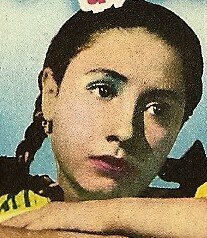
Eva María Muñoz Ruíz, known professionally as Evita Muñoz "Chachita", was a Mexican actress and comedian. Her professional career began in 1941, when she was only four years old, and she continued performing through, and contributing to, the Golden Age of Mexican cinema. Muñoz was still four years old when she played the character Chachita in her second film, ¡Ay, Jalisco, no te rajes! (1941), and went on to play Chachita in eight more films and numerous television roles over the subsequent decades, and would be credited as Eva Muñoz "Chachita" in other appearances. For more than 75 years, "Chachita" was recognized as a successful artist in cinema, television, theater, radio, nightclub and circus shows.

Chilean cinema refers to all films produced in Chile or made by Chileans. It had its origins at the start of the 20th century with the first Chilean film screening in 1902 and the first Chilean feature film appearing in 1910. The oldest surviving feature is El Húsar de la Muerte (1925), and the last silent film was Patrullas de Avanzada (1931). The Chilean film industry struggled in the late 1940s and in the 1950s, despite some box-office successes such as El Diamante de Maharajá. The 1960s saw the development of the "New Chilean Cinema", with films like Three Sad Tigers (1968), Jackal of Nahueltoro (1969) and Valparaíso mi amor (1969). After the 1973 military coup, film production was low, with many filmmakers working in exile. It increased after the end of the Pinochet regime in 1989, with occasional critical and/or popular successes such as Johnny cien pesos (1993), Historias de Fútbol (1997) and Gringuito (1998).
The third annual Altazor Awards took place on March 25, 2002, at the Museo Nacional de Bellas Artes.
Cofralandes, Chilean Rhapsody is an experimental four-part 2002 Franco-Chilean digital video series written and directed by Raúl Ruiz for the Chilean Ministry of Education. The first part won the Glauber Rocha Award for the Best Film from Latin America and a FIPRESCI Award at the Montreal World Film Festival in 2002 "for the director's personal exploration into his homeland, using DV in a rigorous yet playful manner".
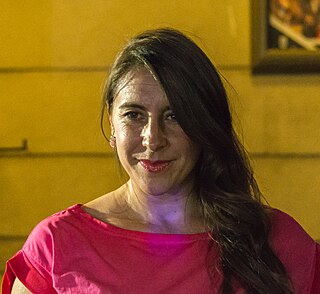
Patricia Javiera López Menadier is a Chilean singer and actress of film, theater, and television. In 2012, she joined the cast of Reserva de familia.
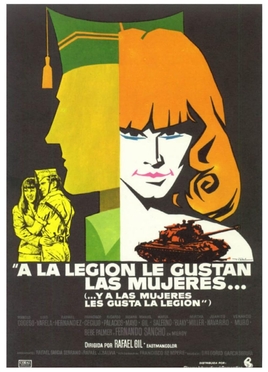
The Legion Like Women is a 1976 Spanish comedy film directed by Rafael Gil and starring Manolo Codeso, Luis Varela and Francisco Cecilio. It is set during the Spanish Civil War.

Un célebre especialista sacando muelas en el gran Hotel Europa was the first Venezuelan film. It was screened at the Baralt Theatre in Maracaibo, Zulia on 28 January 1897 as the second in a film block of four; the block also featured another film from Maracaibo. Little is known about the film's production, and scholars are uncertain of the identity of its director.
(This sea knows too much) Takilleitor is a 1998 Chilean film directed by Daniel de la Vega and starring Luis Dimas.
Fiebre de juventud, also known as Romance en Ecuador, is a 1966 Mexican-Ecuadorian musical comedy film directed by Alfonso Corona Blake and starring Enrique Guzmán, Begoña Palacios, Rosa María Vázquez and Fernando Luján.

Mariana Francisca Loyola Ruz is a Chilean theater, film, and television actress. Loyola began to work regularly in the theater until in 2001 she was cast in the telenovela Amores de mercado. That same year she made her feature film debut with Andrés Wood's La fiebre del loco followed by Sub Terra and Cachimba. Further appearances in television projects such as Machos followed, as did inclusion in the international cast of El baile de la Victoria.
The Havana Film Festival New York (HFFNY) is a film festival, based in New York City, that screens cinema from across Latin America with a special focus on Cuba and its film industry. It is a project of The American Friends of the Ludwig Foundation of Cuba, a 501(c)(3) tax-exempt organization with the mission of building cultural bridges between the United States and Cuba through arts projects.

Love and Desire is a 1951 French-Spanish drama film directed by Henri Decoin and Luis María Delgado and starring Martine Carol, Antonio Vilar and Carmen Sevilla. It was based on the 1929 novel of the same title by Auguste Bailly.
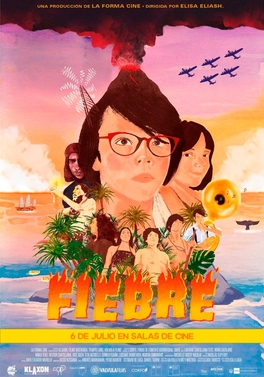
Fever is a 2022 live-action/animated family fantasy film written and directed by Elisa Eliash. Starring Lautaro Cantillana Teke. It is based on the 2017 short film Un poco de fiebre by the same director. The film had an initial release as part of the 29th Valdivia International Film Festival, Chile on October 11, 2022.













